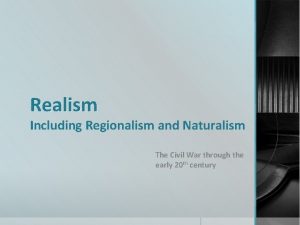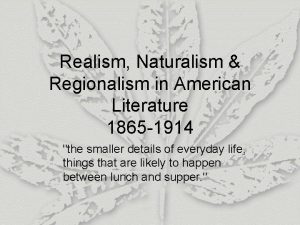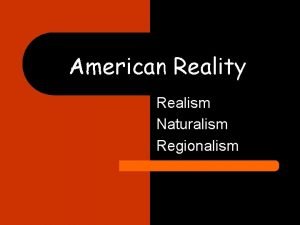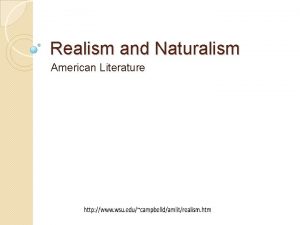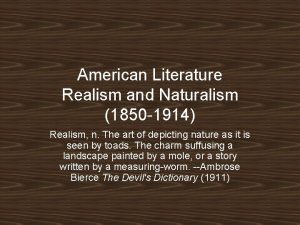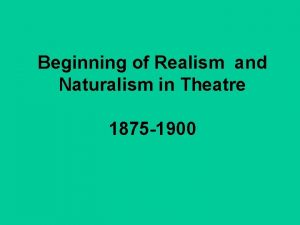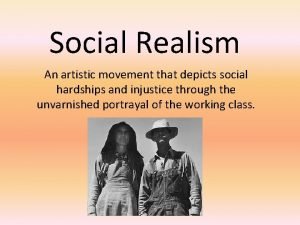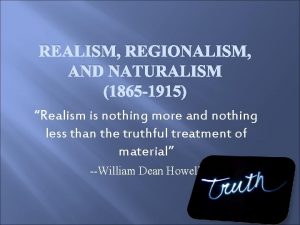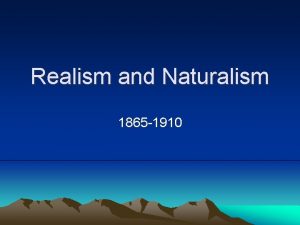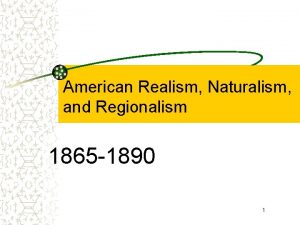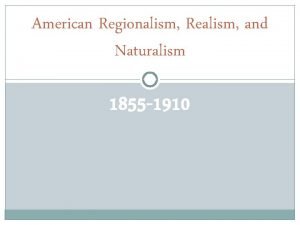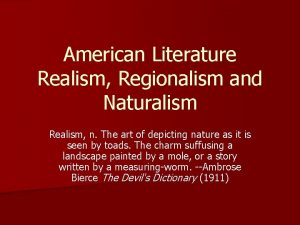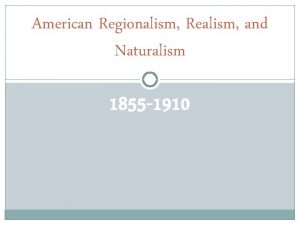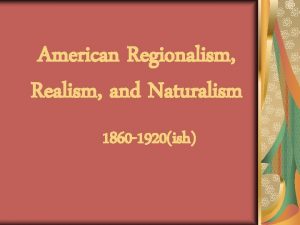Realism Regionalism and Naturalism Literary Movements Realism 1865









- Slides: 9

Realism, Regionalism, and Naturalism Literary Movements

Realism (1865 -1915) • Realism is the presentation of the details of actual life. • Literary movement that stressed the actual, NOT the imagined. • Truthful about ordinary characters in ordinary situations • Reacted against Romanticism, rejecting heroic, adventurous, unusual, or unfamiliar subjects. • Examples: Ambrose Bierce, Mark Twain, Kate Chopin, Jack London, Stephen Crane

Elements of Realism • Author is focused on how the story happened (just facts, no opinions) • Real life situations/events that could actually happen (pragmatic) • Ordinary Characters and what makes them ordinary • Characters morals/ beliefs/values and/or choices are written about

Naturalism • An outgrowth of Realism, Naturalism was a literary movement among novelists where they traced the effects of heredity (genes/genetics) and environment on people who are helpless to change their situations. • Viewed people as helpless victims of natural laws • They believed in theory of Darwinism – Survival of the fittest • Examples: Jack London, Stephen Crane

Elements of Naturalism • Victim to heredity, nature, OR environment – the conflict • Character’s effort at doing or making choices that they want are out of their control (inevitable) • Characters are often ill-educated OR lower -class

Regionalism • Another outgrowth of Realism, Regionalism in literature is the tendency among certain authors to write about specific geographical areas. • Regional writers present the distinct culture of an area, including its speech, customs, beliefs, and history. • Regionalists usually go beyond the presentation of culture and attempt to create a sociological or anthropological treatment of the culture of a region. • Examples: Mark Twain, Jack London, Willa Cather

Elements of Regionalism • Shows dialect of an area – how they speak • Shows customs of an area or their beliefs/values – what they do, how they do it • Shows the history of an area • Scenery and land are unique to that specific area (panoramic)

Why was Regionalism Important? • ONLY WAY TO “SEE” THE COUNTRY!! • Turn of the 20 th Century – 8% of homes had a telephone – 8, 000 cars – 144 miles of paved road – Speed limits were about 10 mph in cities – American Flag had 45 stars • Arizona, Oklahoma, New Mexico, Hawaii and Alaska were NOT part of the US yet

Source • American Literature: Major Movements and Terms. 9 Dec 2004 <http: //staff. gps. edu/gaither/literary_movements. htm>.
